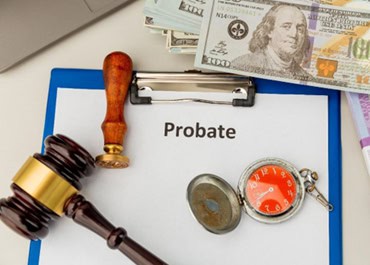
Death is not the end – at least, not for your wealth, belongings, assets, property, and legacy. Those will have to go through the wringer of Virginia or Tennessee Probate Court. Unless that is, you follow the advice in this article and work with an estate planning attorney to avoid it. The article explains:
- What probate is, when it occurs, and why you might want to avoid it for your estate.
- Two tips for avoiding probate in Virginia and Tennessee.
- Why you should work with an experienced attorney when trying to avoid probate.
What Is Probate?
There are only two ways to transfer assets out of your name in Virginia, Tennessee, or all of the United States. Either you have to consent to the transfer, or a court has to order it. When you are dead, you cannot consent to the transfer of anything, and that means a lawsuit is required. That is probate.
What Is The Probate Process Like In Tennessee And Virginia?
Probate always begins with the introduction of a will. The will could be either an intestate will, which the state wrote for you if you did not write one, or a testate will, which you wrote with the attorney to be presented to the court.
A Lawsuit Open To Dispute
Once it goes to court, it operates just the way a lawsuit does. All legal heirs have to be given notice, not just your beneficiaries but your heirs at law. That can be a significant difference. Imagine you decided to disinherit one of your kids; well, if your estate goes through the probate process, they still get a notice to attend.
Obviously, that disinherited child is an heir but not a beneficiary under the will. Unfortunately, they can and may very well choose to contest your will and drag the entire estate into a lengthy legal dispute.
A Very Public Process
The next part of the probate process is an inventory. The court needs to know what it has to distribute, which means you need to provide an inventory to the court as to what the deceased person owned. That means everything goes public.
From bank statements to property deeds, all accounts, assets and property will need to be publicly provided and discussed. This can also mean significant delays if there is any error, no matter how minor, on your part.
Long, Tedious, And Touchy
Among the many documents and deeds you will have to provide, you will need to include one or more bank statements summarizing what the deceased person owned. If you even so much as provide the bank statement from September 30th rather than an exceptional one from September 3rd when your relative died, the court will kick that entire inventory back because you made the mistake.
Such a kickback can take weeks to even find out about and then weeks more to fix and get the process rolling again. That is just one example of the costly mistakes you can make during probate administration – costly both in terms of time and money.
Probate Is Inevitably Expensive
Imagine in that previous example that inventory gets kicked back to you 6 to 8 weeks later. It is a nightmare, and you decide you do not want to deal with the headache. You decide to bring in a lawyer to help.
Given that the average probate is 10 to 16 months long, and it takes them even just 10 hours a month at $400 an hour, you just lost 40 grand. Having a lawyer involved in probate is generally a sign that you did not do your estate planning well or thoroughly, and are now paying the price.
You can either bear the weight of a pound of cure or an ounce of prevention. A $5,000 or $6,000 will cost you a lot less than $40,000 in lawyer fees.
How Can Probate Be Avoided In Virginia And Tennessee?
Fortunately, avoiding probate is not as difficult as going through it and nowhere near as expensive. There are a number of estate planning techniques, tools, and strategies that can be used to ensure your estate is distributed and your legacy protected without touching the probate process.
Remember how assets can only be transferred by you or for you through the court? Well, the trick to avoiding probate is transferring ownership or setting up the automatic transfer of ownership for all your assets and property before you die.
To do so, your estate planning attorney will help you with a wide variety of tools:
- Joint tenancy agreements or tenancy by the entirety can allow a property to pass directly to a spouse on your death.
- Payment or transfer on death accounts, insurance policies, or others are established to pass automatically to the chosen beneficiary.
- Trusts can be funded before your death, transferring assets into the ownership of the trust to be distributed according to your wishes by your trustee at or after your death.
These are just some of the diverse and varied tools an experienced estate planning attorney will be able to put at your disposal. Unfortunately, they are not easy to access, much less understand, on your own.
Can Someone Realistically Navigate The Probate Process On Their Own?
Probate is not always a nightmare. Sometimes, especially for a spouse or someone with few assets, it can be fairly straightforward. However, it is almost impossible to know ahead of time if it will end up getting complicated and expensive halfway through.
Whether you are trying to administer an estate through the probate process or working to avoid yours, it is vital to work with an experienced estate planning attorney.
For more information on the Probate Process In Tennessee And Virginia, an initial consultation is your next best step. Get the information and legal answers you are seeking by calling (571) 260-0827 today.
Start Planning Today!
(571) 260-0827